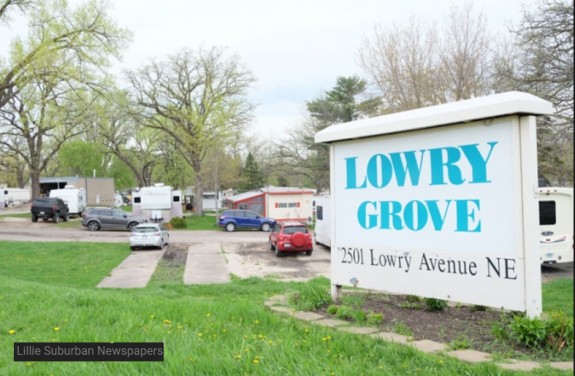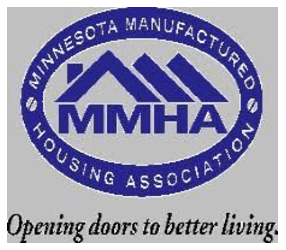
“Mobile home [sic] communities are disappearing in pockets across the metro — and at a much higher rate in Hennepin County, where only six parks remain,” said the Star Tribune’s staff writers.
Nothing could save it for their residents, the ST’s writers mused, “Not an eleventh-hour attempt by a nonprofit. Not a lawsuit. Not manifold pleas at City Hall.”

“The absolute worse calls I get are from homeowners whose community is being closed for redevelopment,” said Paul Bradley, President of ROC USA to MHProNews.
“Resident ownership is an alternative in some of these situations, but we don’t have access to all of the resources that are needed to make redevelopment and displacement a thing of the past.”
“I’m happy Park Plaza Co-op in Fridley was a solution for two of the Lowry Grove households;” Bradley said, “I wish there were space for more.”
Star Tribune noted that one resident took their own life days before the final June 30 move out deadline.
Their report also stated that the “county…has lost half its mobile home parks [sic] since 1991.”


The Daily Business News reached out to 4 senior staff members at the Manufactured Housing Institute (MHI) and their National Community Council (NCC) for comment on this ongoing issue of community closures.

They provided no comment as of press time.

By contrast, NCC co-founder – and long-time community industry opinion writer, George Allen said in an email – “Relative to park [sic] closures. In my opinion, that’s strictly a local housing market issue. It hasn’t been a regional or national issue since the Go Go years came to an end in 2007 & 2008, a decade ago.”
Regional, National or Local?
While that industry professional thinks this is not a regional or national issue, there are others who believe it is indeed a challenge for manufactured home community (MHC) owners nationally – and for the MH Industry at large.
Warren Buffett famously spun off the land-lease communities, after his Berkshire Hathaway group acquired Clayton Homes, reportedly due to his

concerns over the numerous ways that MHCs could lead to media or public relations image issues.
One such saga claims that Buffett didn’t want one of his famous unit’s divisions to be viewed by the public as ‘raising the rents on grandma.’
No doubt, Buffett would like evicting grandma even less.

Marty Lavin, JD – MHI award winner and long time community professional, has previously told MHProNews about such heart-string tugging issues that this is “the manufactured housing industry’s other image campaign.”
While MHI has not responded to the industry’s chief publication of record, sources say that they have formed “a task force” that is “looking into” how they might address the perceptual problems such high visibility community closures create.
And while MHProNews recently reported first one, then another new community breaking ground – how local media responded to those two developments are clear indicators of just how much work the industry must do in order to challenge the prevailing image.
MMHA’s Efforts
“Within days of the closure announcement, MMHA created a and launched a relocation assistance webpage, in both English and Spanish, to help displaced Lowry Grove homeowners connect with MMHA communities within a 25-mile radius; as well as help locate movers, installers, sales centers, and other resources,” the association told MHProNews in a statement, shortly after our request for comments went out to them and others.

“A printed version of the MMHA relocation assistance webpages was included in Lowry Grove homeowner relocation assistance packets provided at a public meeting for those being displaced, sponsored by the City of St. Anthony and the local School District,” the trade group said.
Relocation Assistance
“Lowry Grove was developed in the early 1950’s and had 99 home sites, bordering the City of Minneapolis,” said the MMHA, as part of their background.

“As communities become surrounded and engulfed by restaurants, Hilton Hotels, stadiums, big box stores, airports, residential and commercial developments,” Jay Hamilton, Georgia Manufactured Housing Associations’ executive director told MHProNews, “property taxes begin exceeding the total revenue from renting spaces.”
“Some of the homes were original to the development of Lowry Grove in the 1950’s, and were not in good enough condition to be relocated or did not meet building code requirements for securing a permit to move into another Twin Cities municipality,” the MMHA statement continued. “Those residents with newer homes in Lowry Grove, were able to relocate, receiving moving expenses covered by the Manufactured Home Relocation Trust Fund, administered by the State of Minnesota.”

While MN and Florida are reportedly among those states that offer a relocation fund for residents, not all states do.

“Minnesota’s Manufactured Home Relocation Trust Fund, was established in 2007 with the support of the MMHA and advocate groups, providing assistance for relocation costs to displaced homeowners or will buyout of homes that are structurally are not able to be relocated. The relocation expenses and buyout amounts paid to displaced residents were increased by the Minnesota Legislature in 2016, prior to the Lowry Grove closure. Minnesota Statute 327C.095 https://www.revisor.mn.gov/statutes/?id=327C.095” ## (News, Analysis.)
(Image credits are as shown above, and when provided by third parties, are shared under fair use guidelines.)

